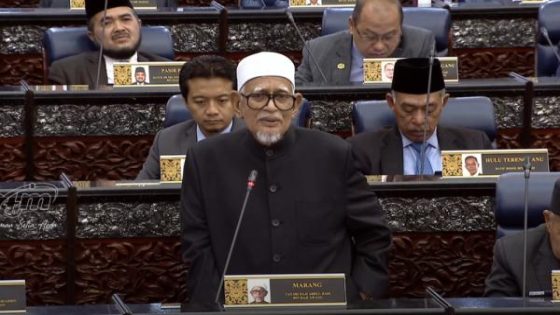On February 18, 2025, President of PAS, Abdul Hadi Awang, expressed disappointment over the lack of prominence given to the Malay language in Malaysia. Despite being enshrined in the Federal Constitution, he noted that foreign languages often overshadow Malay, especially in government affairs. Why is the national language still sidelined in its own country?
- Disappointment in Malay language status
- Foreign languages prioritized over Malay
- Malay language usage in public spaces
- Multicultural acceptance of Malay language
- National identity linked to language use
- Comparison with other countries at UN
Why is the Malay Language Overlooked in Malaysia’s Governance?
Abdul Hadi’s remarks raise an important question: How can a nation thrive when its identity is compromised? He pointed out that despite a diverse society, the Malay language is often relegated to a secondary role in official communications. This situation is troubling, especially when English dominates even in events with minimal foreign presence.
Understanding the Importance of Language in National Identity
The significance of language in shaping national identity cannot be overstated. Abdul Hadi highlighted that many countries proudly use their native languages on international platforms like the United Nations. This practice fosters a sense of pride and unity among citizens. In contrast, Malaysia’s reliance on English raises concerns about cultural erosion.
- Language reflects a nation’s identity and values.
- Official use of Malay can strengthen national unity.
- Encouraging Malay promotes cultural heritage.
- Global examples show the benefits of using native languages.
Challenges Facing the Malay Language in Official Settings
Abdul Hadi pointed out that even in formal settings, English often takes precedence. This trend can lead to a disconnect between the government and the people. If officials prioritize English, how can they effectively communicate with the majority who are fluent in Malay?
Global Perspectives on Language and Identity
Many nations showcase their languages on global stages, reinforcing their cultural identities. For instance, leaders from countries like France and China deliver speeches in their native tongues at international forums. This practice not only honors their languages but also strengthens their national pride. Shouldn’t Malaysia follow suit to promote the Malay language?
In conclusion, Abdul Hadi Awang’s call to elevate the Malay language is a reminder of the importance of language in fostering national identity. As Malaysia navigates its multicultural landscape, embracing its national language can pave the way for unity and pride among its citizens.
































